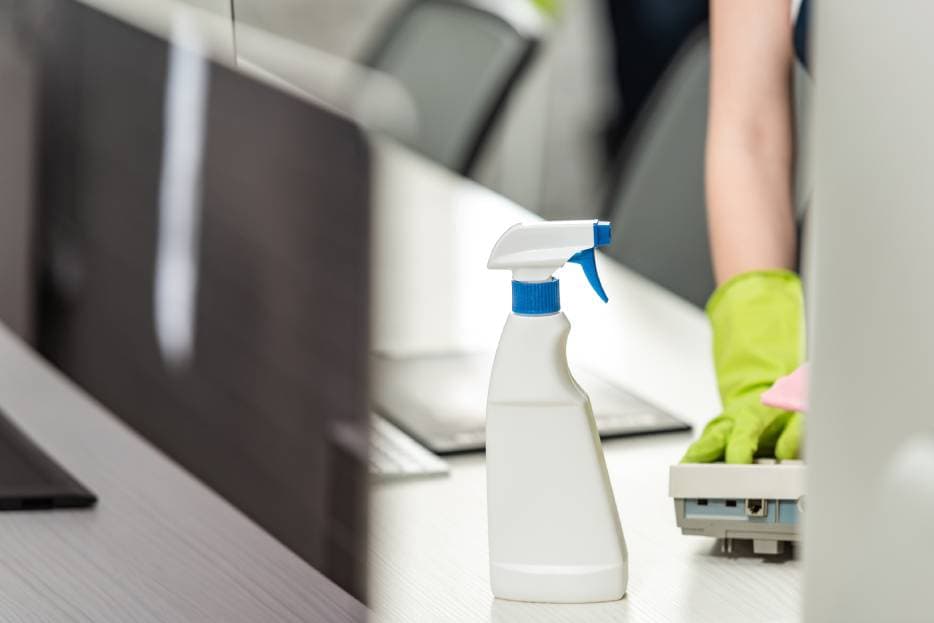Today, many companies have begun to understand that cleaning is not just an operational matter, but a decision that can have a profound impact on their business model. In sectors such as corporate, industrial, or services—where traceability, reputation, and efficiency matter more than ever—the choice of suppliers aligned with sustainable values is no longer optional.
In this sense, more and more companies are seeking cleaning services in Monterrey that not only guarantee visible results but also minimize their ecological footprint, promote internal ESG policies, and strengthen their positioning with investors, clients, and employees. This is not a trend—it is clear that well-implemented sustainability becomes a measurable competitive advantage.
What are sustainable cleaning services?
Sustainable cleaning services are much more than a “green” version of traditional cleaning. They involve a systemic approach that reduces environmental impact, prioritizes resource efficiency, and is based on certified processes that ensure hygiene standards without compromising the environment or human health.
Unlike conventional models that rely on the indiscriminate use of chemicals or energy-intensive routines, these services are designed to consciously integrate into a company’s environmental policies. This includes everything from the selection of biodegradable supplies and low-consumption equipment to the implementation of waste reduction and recycling protocols.
One of the most important benchmarks within this vision is the incorporation of strategies for waste reduction in professional cleaning, such as the use of reusable mops, smart dispensing systems, or differentiated waste management systems. These strategies not only reduce the amount of waste generated but also contribute to an internal circular economy, raising the standard of corporate responsibility.
Advantages of choosing sustainability-focused cleaning services
Adopting this approach not only provides environmental value but also transforms key areas of business operations:

1.- Improved corporate image and brand reputation
As we know, transparency is increasingly demanded nowadays, so having suppliers aligned with sustainable principles strengthens a company’s public image. Tangible actions, such as implementing ecological cleaning programs, build trust among clients, partners, and communities, showing commitment beyond words.
These initiatives also improve positioning with the media, certifying bodies, and environmental evaluation platforms, which has positive effects in terms of visibility and regulatory compliance.
2.- Compliance with environmental regulations and certifications
Regulatory frameworks should not be taken lightly. Having cleaning services that meet standards such as ISO 14001 or LEED makes regulatory compliance easier and can be essential for maintaining or obtaining operational certifications, environmental permits, or sector-specific authorizations.
Likewise, anticipating new regulations through sustainable practices reduces legal, operational, and reputational risks.
3.- Reduction of long-term operational costs
Although sustainable services may represent a slightly higher investment in the initial stage, their benefits translate into significant cumulative savings. Reduced consumption of water, energy, or chemical products is directly reflected in monthly operating expenses.
The durability of reusable materials, route optimization, and the use of smart technologies maximize human and logistical resources, reducing hidden or unproductive costs that often go unnoticed in traditional schemes.
4.- Healthier spaces for employees and clients
Another benefit is the creation of healthier indoor environments, as minimizing the use of aggressive chemicals and improving ventilation during cleaning reduces the likelihood of allergies, irritations, or respiratory illnesses. This is reflected in lower absenteeism, higher productivity, and a better experience for visitors and occupants.
5.- Access to tenders and partnerships with sustainable companies
More and more public and private tenders include environmental criteria as part of their evaluation requirements. By working with sustainable cleaning providers, a company can score key points in selection processes, expanding its business opportunities.
The same applies to strategic alliances for organizational growth—for example, large companies with ESG policies only partner with those that can demonstrate responsible practices throughout their value chain, making sustainable cleaning a real commercial asset.
Impact on organizational culture and internal engagement

Implementing sustainable cleaning services also has a deep internal effect. Beyond tangible benefits, it reinforces a culture of shared responsibility at all levels of the organization.
When employees see that the company makes decisions consistent with its environmental discourse, they tend to align with those values and replicate them in their own workspaces. This increases motivation and a sense of belonging, strengthening a more solid institutional identity.
Likewise, these practices allow for the incorporation of concrete actions within internal sustainability campaigns, such as awareness days on recycling, waste reduction, or responsible use of cleaning products.
As we can see, choosing sustainable cleaning services is neither an ethical concession nor a PR strategy—it is, undeniably, an operational decision with profound implications for efficiency, reputation, and business competitiveness.
As the market raises its sustainability requirements, companies that act with foresight not only meet expectations but lead change from the everyday. The benefits are not limited to environmental matters, as they also cover economic, legal, human, and symbolic aspects.
Investing in these services is not simply an operational improvement—it is also a statement of principles that translates into a real competitive advantage, capable of positioning companies as responsible, intelligent, and future-aligned leaders.
